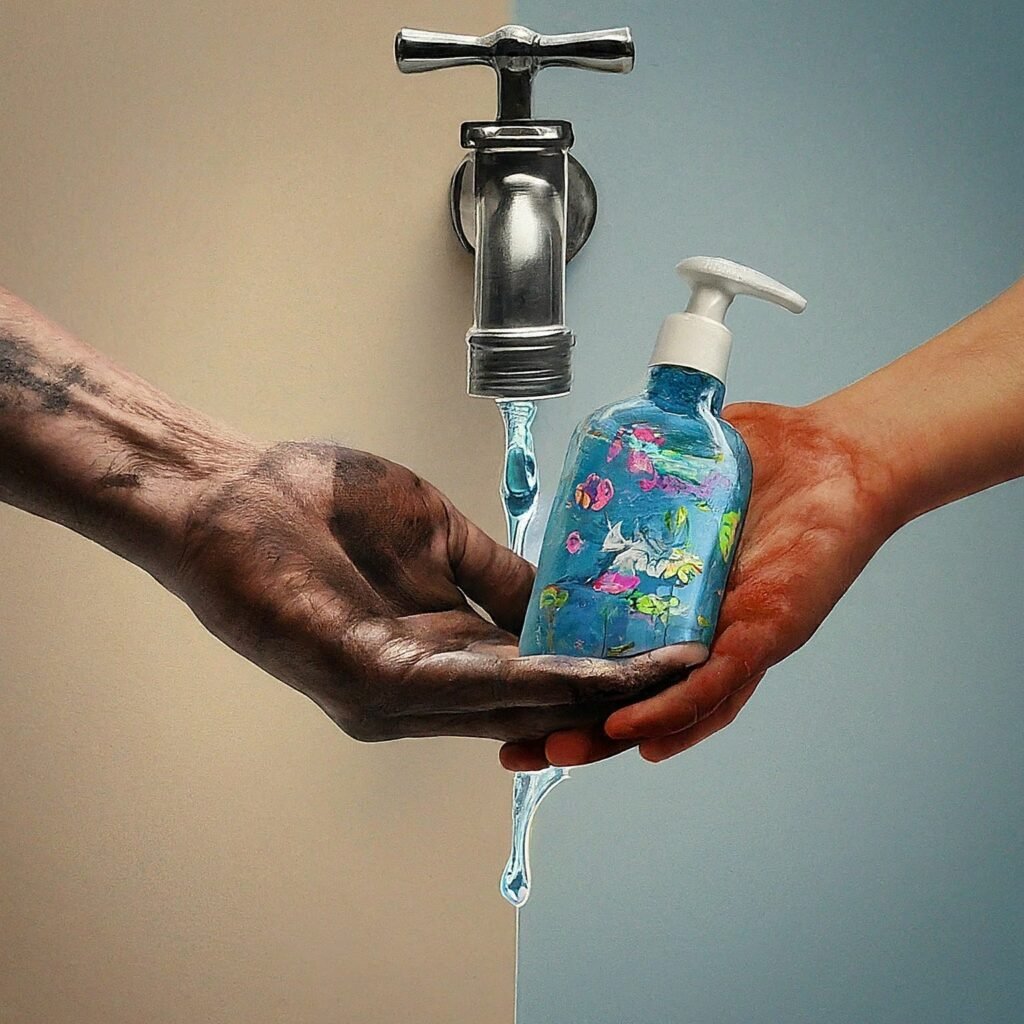
Our hands are constantly on the move, shaking hands, touching surfaces, and interacting with the world around us. Unfortunately, this constant interaction also means they pick up germs and bacteria throughout the day.expand_more These germs can then be easily transferred to our eyes, nose, and mouth, potentially leading to illness.expand_more
The good news? Handwashing is one of the simplest and most effective ways to prevent the spread of germs and keep yourself healthy.expand_more But how often should you actually be washing your hands?
This article will delve into the importance of handwashing, explore situations that call for a handwashing break, and provide tips for proper handwashing techniques.
Why is Handwashing So Important?

Handwashing is a crucial defense mechanism against a variety of illnesses, including:
- The common cold and flu: These viruses are often spread through contact with contaminated surfaces or respiratory droplets.expand_more Washing your hands regularly helps prevent them from entering your body.expand_more
- Gastrointestinal illnesses: Bacteria like E. coli and Salmonella can cause stomach upset, vomiting, and diarrhea. Proper handwashing significantly reduces the risk of these infections.expand_more
- Respiratory illnesses: Respiratory syncytial virus (RSV) can cause severe respiratory problems in young children.expand_more Handwashing helps prevent the spread of RSV and other respiratory illnesses.expand_more
- COVID-19: While not the sole method of prevention, frequent handwashing is an essential tool in the fight against COVID-19. expand_more
When Should You Wash Your Hands?

While it’s important to wash your hands throughout the day, there are specific situations where handwashing is especially crucial:
- Before, During, and After Preparing Food: Raw meat, poultry, and seafood can harbor harmful bacteria.expand_more Wash your hands before handling any food items, in between handling different ingredients (like switching from raw chicken to vegetables), and after preparing meals.
- Before Eating: Your hands come into contact with many surfaces throughout the day, potentially picking up germs.expand_more Wash your hands before eating to prevent these germs from entering your body.expand_more
- After Using the Toilet: Bathrooms are breeding grounds for bacteria.expand_more Always wash your hands thoroughly after using the restroom.expand_more
- After Changing Diapers: Diapers can harbor bacteria and parasites.expand_more Washing your hands after changing a diaper is essential to prevent the spread of germs.expand_more
- After Blowing Your Nose, Coughing, or Sneezing: Respiratory droplets expelled during coughs, sneezes, and nose blowing can contain germs.expand_more Wash your hands immediately after to prevent the spread of these germs.expand_more
- After Touching Animals: Animals can carry a variety of germs and parasites.expand_more Wash your hands after petting any animal, cleaning up after them, or handling animal waste.expand_more
- After Handling Garbage: Trash cans often harbor bacteria.expand_more Wash your hands after taking out the trash or handling any garbage.expand_more
- After Visiting Someone Who is Sick: If you’re around someone who is sick, wash your hands frequently to avoid contracting their illness.
- Before and After Treating Wounds: Washing your hands before and after treating a wound helps prevent infection.expand_more
- Before Putting in or Taking Out Contact Lenses: Your eyes are delicate and susceptible to infection.expand_more Wash your hands thoroughly before handling contact lenses.expand_more
How to Wash Your Hands Properly

Washing your hands isn’t just about getting them wet. Here’s how to ensure a thorough and effective clean:
- Wet your hands with clean, running water (warm or cold)expand_more
- Apply soap and lather your hands: Use enough soap to create a good lather.expand_more
- Scrub all surfaces of your hands for at least 20 seconds: This includes the palms, backs of your hands, between your fingers, under your nails, and around your wrists.expand_more Think of humming the “Happy Birthday” song twice to ensure proper scrubbing time.expand_more
- Rinse your hands thoroughly under clean, running water.expand_more
- Dry your hands completely with a clean towel or paper towel.expand_more Damp hands can harbor germs, so thorough drying is crucial.expand_more
Tips for Effective Handwashing:

- Keep your fingernails trimmed and clean.expand_more Long nails can harbor dirt and germs.expand_more
- Don’t touch the faucet handle with clean hands after washing. Use a paper towel or your elbow to turn off the faucet.
- Carry hand sanitizer with you for situations when soap and water are unavailable. Choose a hand sanitizer with at least 60% alcohol.expand_more
- Teach children the importance of handwashing. Make handwashing a routine part of their daily activities.expand_more
Additional Considerations:
- Alcohol-based hand sanitizers: While not as effective as handwashing with soap and water, hand sanitizers can be a helpful alternative


